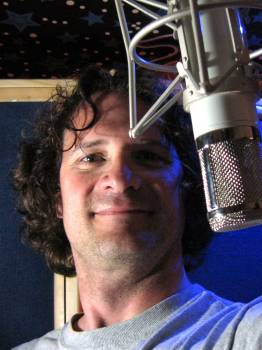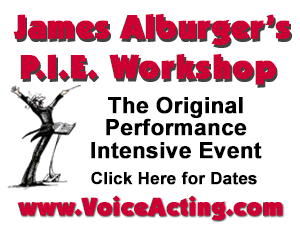|
WRITING COMMERCIALS Leaving Space 'Between the Lines' Is Good For Everyone's Bottom Line  By Dan Friedman By Dan Friedman Audio Engineer, Producer & Voice Talent A radio or television commercial is more than just words. The space between the lines helps to determine pace and establish mood. Space allows the mix engineer to create an environment in which the voice exists and where music and/or sound effects can be placed to help tell the story and communicate the message. This space and these elements are often key to the production. Scripts often indicate that sound effects and music will play a key role at certain points within in a radio or TV production. These notes are great for the producer or engineer who mixes the spot. They give the mix engineer a clear idea of what the intentions of the client are and what the client is expecting to hear when the spot is finished. SCRIPTS SOMETIMES 'OVERWRITTEN' However, what happens all to often is that the script is over written, leaving little or no time available for these elements to develop. They simply can’t have the impact they were intended to have. If a script, read out loud, is taking all of the time available, then what time is left for the music and sound effects to perform their role? Worse yet, the voice talent may feel forced to alter their speed or delivery to accommodate these elements. This may prevent the voice talent from communicating the message in the most effective way possible. While there is little doubt that the message (the actual spoken words) should be the focus of most commercial audio productions, writing less copy provides space for music and sound effects to help communicate that message. In fact, these elements combined with the delivery of the voice talent, can often do more to communicate the overall message than including additional words in a script. TAKE THE TIME Radio and TV spots must fit into a specific time frame, usually :30 (:29.5 for TV) or :60 seconds. While these times are important, taking the time that will be needed for music and sound effects into consideration while writing and preparing a script can also be critical to the bottom line. The time saved in the studio by having a carefully written and timed script before recording begins, is time and therefore money saved. Clients may insist on getting all of their critical information into a spot. But ultimately, clients want people to act (or buy something). Creative "ear catching” commercials are often more memorable and influential then a long string of words being forced upon a listener. The space between the lines allows creativity to flourish. Even if additional elements are not part of the radio or TV commercial, proper spacing and pacing will allow the listener to think about and hopefully act on what is being communicated to them. ABOUT DAN ...
Dan Friedman is a voice talent
who began as an audio engineer in 1994, working with live sound and then
in radio and recording studios. He has been a producer with ProComm Voices
for over 10 years, and since 2005, a voice talent with a growing list
of of clients including radio and television campaigns. His
comprehensive book, Sound Advice - Voiceover From An Audio Engineer's Perspective, provides an excellent foundation for understanding voice over audio and equipment.
Email: danfriedmanvo@hotmail.com Sound Advice book: Click Here
|
|
|
Inspiring interviews help your VO career
With Sean Daeley and Paul Stefano - check it out!
Email alerts to new VoiceOverXtra articles
Get your bi-weekly dose here ... all things VO!
As of the NEW website launch, 03/22/2012










Maybe you could get your article printed in Ad Week or something....!
A car dealer once wrote a :60 radio spot for me to do; I think he and his whole staff had input. I told him it wouldn't work...putting 20-lbs of sh*t in a 10-lb bag. I agreed to do his spot only if I could write one to alternate with it. Explaining my concept, the radio station told me the maximum "dead air" time they'd allow.
I wrote an amusing spot that took dead air breaks to the max with quick lines like "this spot is for a car dealer"..."that's not dead air, just a pause"..."it's a local dealer"...etc, adding their name and address at the end. It could only work in a small market.
They were well-known locally anyway and people called them like crazy about "their clever spot."
Then, I told them that if they wouldn't write radio spots, I wouldn't sell cars. Never had a problem again.
Remember, the trick is to capture attention, not duplicate the Yellow Page ad!
Yes yes yes.
I find the "ten pounds of copy in a five pound bag" an especially hard row to hoe since I've been both a copywriter and a VO for most of my career. On the flip side, my absolute favorite current client is both the company's marketing director and the copywriter for the campaign. She's a wonderful woman who totally gets the concept of "just enough to get the point across." Completely open to suggestions, and totally embraces the value of not going pedal-to-the-metal for 60 seconds, which is a rare and wonderful thing.
So there are people who "get it." If you're lucky enough to work for one, be sure they know how much you appreciate it. They don't come around that often.
Here’s a timing scenario that happens all too often. There’s a great concept, which lends itself very well to the product or service being advertised. And the whipped cream on top of this great concept is strong character that will instantly make an impression on the listener (the key word is ‘impression’).
Let’s say the advertiser is an upscale restaurant serving sumptuous cuisine in a very laid-back setting. The concept requires the voice talent to play a maître d’.
While we can almost hear him explaining the menu now, if there is too much copy, the concept is sunk right from the get-go. The read will be too fast for the voice talent to create a realistic-sounding maître d’, and the brisk pace will also go completely against the laid-back setting the restaurant boasts.
The writing creates everything the listener will learn and believe about the business being advertised … or not. So the writing must be completely true to and accurately reflect the image the advertiser wishes to embody. The classic Federal Express TV spot from 1981, featuring the verbal velocity of actor John Moschitta, Jr., worked because the company was selling speed: their overnight delivery service. The spot won six Clio awards, partially because Mr. Moschitta’s talent was also very entertaining. But in radio advertising, rapid-fire delivery usually doesn’t work. The image that comes to mind is that of the typical fast-talking salesman.
Radio used to be referred to as ‘theatre of the mind’ because its lack of visual content allowed the listener to create mental images of what they heard. Remember the key word ‘impression?’ The medium hasn’t changed. We can still tell wonderful stories that engage the listener if we use audio – and imagination – to their fullest potential.
Thanks again, Dan, for starting a great conversation.
may i also add: it's a great help when a good voice talent has a good director/and/engineer to craft a new read that SOUNDS like some of that space has been put back. that could be a seminar in itself.
How many times I hear "Wow, I really love your read - unfortunately, it's too long and the script has been approved by legal/client/committee so we can't make any cuts at all." Then it becomes top priority just to "get all the words in" and some beautifully-written scripts get lost in the race.
You rock!
Randye
The people putting the commercial concept together are the ones who are stuck with this job of delicate diplomacy. It's known in the business that, wherever possible, you avoid bringing the client to the recording session. The client generally lacks the perspective to visualize the commercial in mid-process, and it can be an upsetting experience to see his or her "baby" being worked on in what appears to be a cavalier fashion by people who simply don't have the same feeling for his/her product or service.
There has to be a certain level of trust in the professional qualifications of the people that the client has hired to successfully represent the product or service. Just as calling in a plumber to fix a leak doesn't presume that the customer has the right to micromanage the repair process by telling him, "No, I don't want you to use this wrench - I want THAT wrench!"
It begins and ends with client relationship. It comes down to trusting professionals enough to allow them to give them the space to work their expertise in the client's best interests, even though the results are far from guaranteed. Unfortunately, not all clients are prepared to relinquish that level of control.